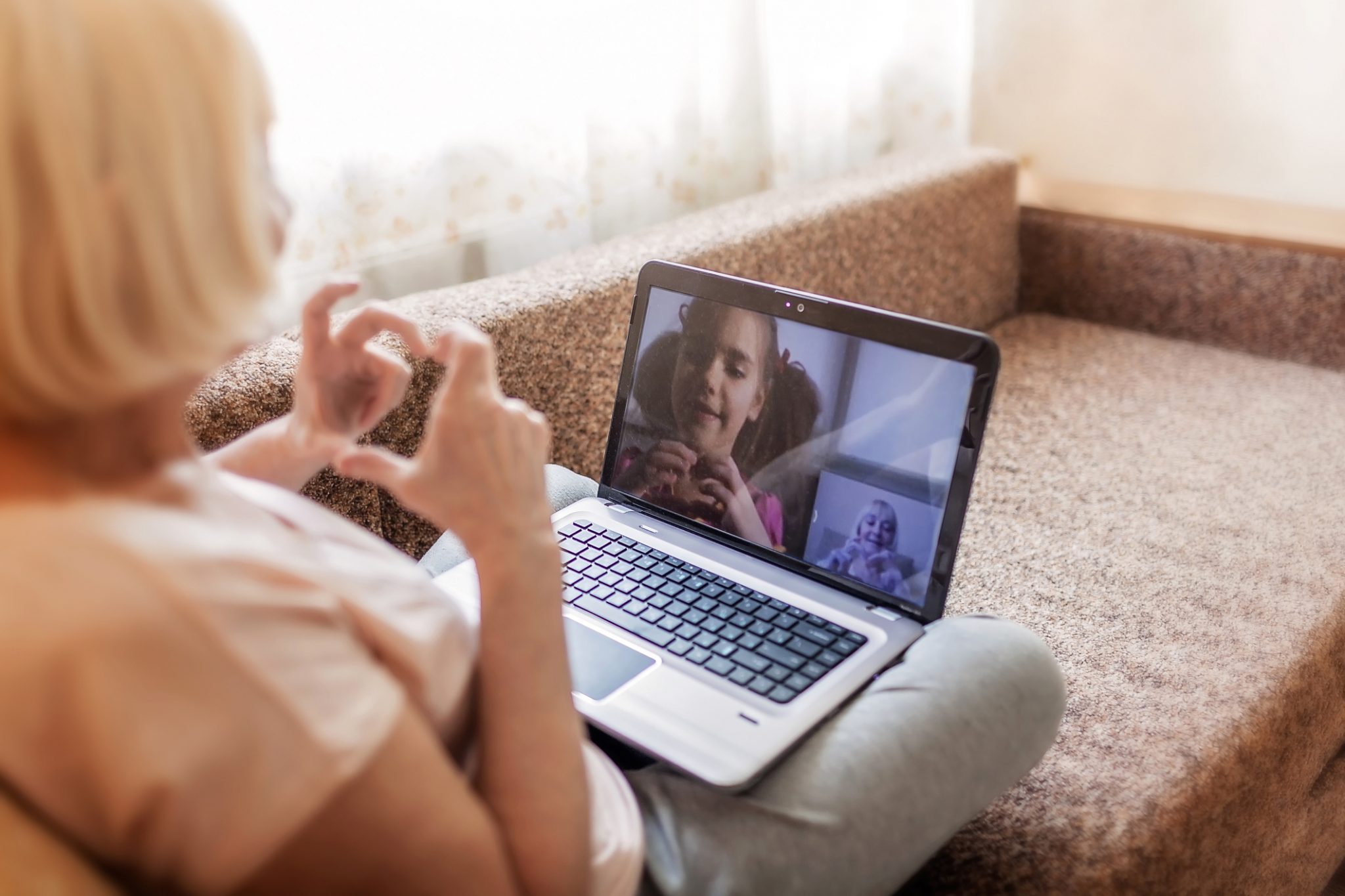Staying Connected While Social Distancing Is Important, Here’s Why

November 11, 2021
By: Kylie Stanger
Social distancing is an important way to slow down the spread of the COVID-19. But for many, keeping distance from other people can feel isolating and lonely.
The reality is that instead of social distancing, we should be calling it ‘physical distancing’. “It’s reframing the circumstance,” says Mindy Altschul a licensed clinical social worker at Hackensack Meridian Carrier Clinic. “If we reframe our mindset, we can start to look at it differently and ease ourselves into it.”
By rethinking the concept, we can stay socially connected with our loved ones, especially our seniors – but from a distance.
Understanding the Impact of Isolation
Spending days (or weeks now) at home with limited stimulation and social contact can take a toll on one’s mental health.
According to a study from the American Psychological Association, the lack of social connection heightens health risks as much as smoking 15 cigarettes a day. “Being connected to others socially is considered an important human need and is vital to one’s well-being,” says Altschul.
Loneliness can cause chaos for an individual’s health in several ways. Scientific evidence is linked to health consequences including:
- Depression
- Poor sleep quality
- Impaired decision-making
- Accelerated mental decline
- Poor cardiovascular function
- Impaired immunity
- An increase in risk of stroke and/or dementia
- Development of coronary heart disease
Dealing with Distancing
Bringing a sense of purpose to your day can be essential. Here are some things you can do to maintain your sanity, stay connected, keep kids occupied and ultimately feel a little less alone during the current ‘Stay-at-Home’ orders:
- Good old fashion phone calls – When text messages can start to feel impersonal a phone call is a quick and easy way to connect.
- Utilize social media – From Zumba classes to live stream concerts, we’re all discovering new ways to stay connected and engaged through our social media platforms.
- Go virtual – You can still spend time with your loved ones without them being physically there via video chats such as FaceTime. Have a virtual coffee date, dinner party or even game night.
- Snail Mail – If you prefer a more creative method send a postcard or a handwritten note to show your loved ones you care.
- Create and follow a daily routine – Maintaining a daily routine can help preserve a sense of order and purpose in your life. Try to include regular daily activities such as work, exercise or learning, even if they must be done remotely.
- Check in on your loved ones often – Even virtual communication can help you and your loved ones feel less lonely and isolated.
“As much as we can help replace the human contact with tech assisted contact, it will only take us so far,” says Altschul. “We are starting to feel the lack of hugs and handshakes and the sense of community.” She recommends adding comforting things into your everyday environment such as wearing comfortable clothes, adding plants or art in your living space, or even picking up a hobby that you may have been too busy to do before like knitting. “Adding familiar creature comforts that we are longing for helps soothe the disconnect,” says Altschul.
The material provided through HealthU is intended to be used as general information only and should not replace the advice of your physician. Always consult your physician for individual care.
Find a doctor near me
What If I Like Being Quarantined?

Adjusting to life outside quarantine? Learn coping strategies for anxiety and stress from Dr. Mishra. Manage your return to normalcy. Schedule your wellness visit today.
Reduce Your Fear of Needles

A fear of needles can seem debilitating. Here are some tips to help overcome the phobia.




